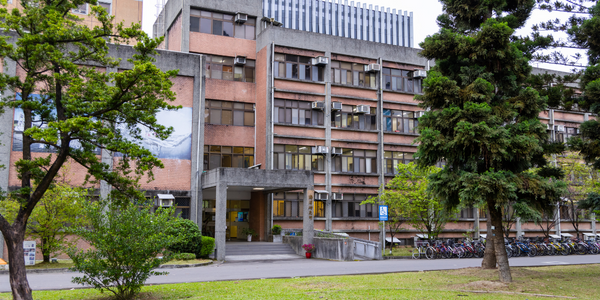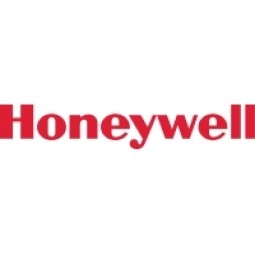Technology Category
- Analytics & Modeling - Predictive Analytics
- Functional Applications - Computerized Maintenance Management Systems (CMMS)
Applicable Industries
- Buildings
- Healthcare & Hospitals
Applicable Functions
- Facility Management
- Maintenance
Use Cases
- Building Automation & Control
- Predictive Maintenance
Services
- System Integration
About The Customer
Bluewater Health is a Canadian healthcare facility with hospitals in Petrolia and Sarnia, Ontario. The organization features a 10-year-old redevelopment and addition to a 60-year-old building and a 110-year-old building in the midst of redevelopment. The 317,000 sq. ft. addition to the facility in Sarnia featured a significantly larger emergency department; a surgical center with eight operating rooms and four procedure rooms and a consolidated maternal/infant/child program, with labor, birthing and pediatric services all on one floor. The new construction also incorporated many innovative and sustainable design features, such as an underground cistern to collect rainwater, a grey water system for toilets, a state-of-the-art chiller and a new combined heat and power generating plant ready to come online. This makes Bluewater Health one of Canada’s first LEED (Leadership in Energy and Environmental Design) certified hospitals.
The Challenge
Bluewater Health, a Canadian healthcare facility with hospitals in Petrolia and Sarnia, Ontario, faced several challenges. The organization, which includes a 10-year-old redevelopment and addition to a 60-year-old building and a 110-year-old building in the midst of redevelopment, had to deal with the complexities of managing multiple locations with varying infrastructure. The new construction incorporated many innovative and sustainable design features, but these also brought the challenge of consolidating many inputs of information and technology into one stream of collection and output. Budget constraints and the need to spread finances across every need were also a concern. The Bluewater Health team wanted to perform predictive maintenance, learning from operating data to see issues before they became problems. They sought an intelligent platform that could work with, learn from and grow with their current systems.
The Solution
Bluewater Health leveraged Honeywell Forge Energy Optimization, a cloud-based AI solution that autonomously manages HVAC energy use based on numerous demand factors. The solution captures real-time building data across an entire building portfolio and calculates the optimal set-point strategy for each building, then automatically adjusts the set-points without human intervention. The Honeywell Forge solution was implemented with a direct plan on where the critical start areas were and rules were put into effect for the best analysis. The system began to pull from over 1000 sources of information and provided feedback on anything giving readings outside the acceptable range. The platform allowed facilities and maintenance staff to curtail any issues before they arose, and focus on increasing efficiencies. The maintenance staff could now spend more time performing regular, planned maintenance and strategizing about how to improve systems, rather than reacting to concerns reported by frontline staff.
Operational Impact
Quantitative Benefit

Case Study missing?
Start adding your own!
Register with your work email and create a new case study profile for your business.
Related Case Studies.

Case Study
Energy Saving & Power Monitoring System
Recently a university in Taiwan was experiencing dramatic power usage increases due to its growing number of campus buildings and students. Aiming to analyze their power consumption and increase their power efficiency across 52 buildings, the university wanted to build a power management system utilizing web-based hardware and software. With these goals in mind, they contacted Advantech to help them develop their system and provide them with the means to save energy in the years to come.

Case Study
Hospital Inventory Management
The hospital supply chain team is responsible for ensuring that the right medical supplies are readily available to clinicians when and where needed, and to do so in the most efficient manner possible. However, many of the systems and processes in use at the cancer center for supply chain management were not best suited to support these goals. Barcoding technology, a commonly used method for inventory management of medical supplies, is labor intensive, time consuming, does not provide real-time visibility into inventory levels and can be prone to error. Consequently, the lack of accurate and real-time visibility into inventory levels across multiple supply rooms in multiple hospital facilities creates additional inefficiency in the system causing over-ordering, hoarding, and wasted supplies. Other sources of waste and cost were also identified as candidates for improvement. Existing systems and processes did not provide adequate security for high-cost inventory within the hospital, which was another driver of cost. A lack of visibility into expiration dates for supplies resulted in supplies being wasted due to past expiry dates. Storage of supplies was also a key consideration given the location of the cancer center’s facilities in a dense urban setting, where space is always at a premium. In order to address the challenges outlined above, the hospital sought a solution that would provide real-time inventory information with high levels of accuracy, reduce the level of manual effort required and enable data driven decision making to ensure that the right supplies were readily available to clinicians in the right location at the right time.

Case Study
Intelligent Building Automation System and Energy Saving Solution
One of the most difficult problems facing the world is conserving energy in buildings. However, it is not easy to have a cost-effective solution to reduce energy usage in a building. One solution for saving energy is to implement an intelligent building automation system (BAS) which can be controlled according to its schedule. In Indonesia a large university with a five floor building and 22 classrooms wanted to save the amount of energy being used.

Case Study
Powering Smart Home Automation solutions with IoT for Energy conservation
Many industry leaders that offer Smart Energy Management products & solutions face challenges including:How to build a scalable platform that can automatically scale-up to on-board ‘n’ number of Smart home devicesData security, solution availability, and reliability are the other critical factors to deal withHow to create a robust common IoT platform that handles any kind of smart devicesHow to enable data management capabilities that would help in intelligent decision-making

Case Study
Gas Pipeline Monitoring System for Hospitals
This system integrator focuses on providing centralized gas pipeline monitoring systems for hospitals. The service they provide makes it possible for hospitals to reduce both maintenance and labor costs. Since hospitals may not have an existing network suitable for this type of system, GPRS communication provides an easy and ready-to-use solution for remote, distributed monitoring systems System Requirements - GPRS communication - Seamless connection with SCADA software - Simple, front-end control capability - Expandable I/O channels - Combine AI, DI, and DO channels




